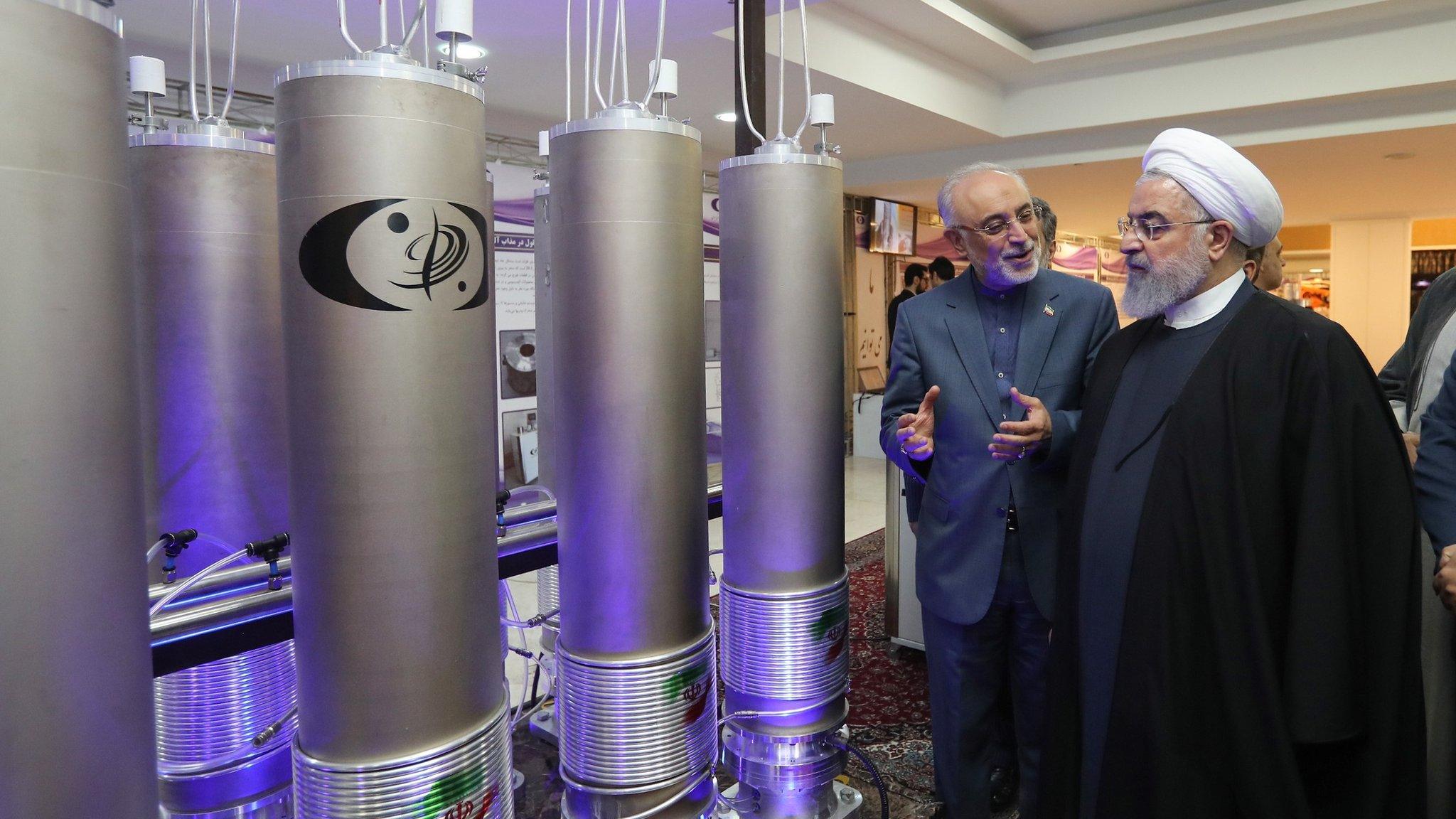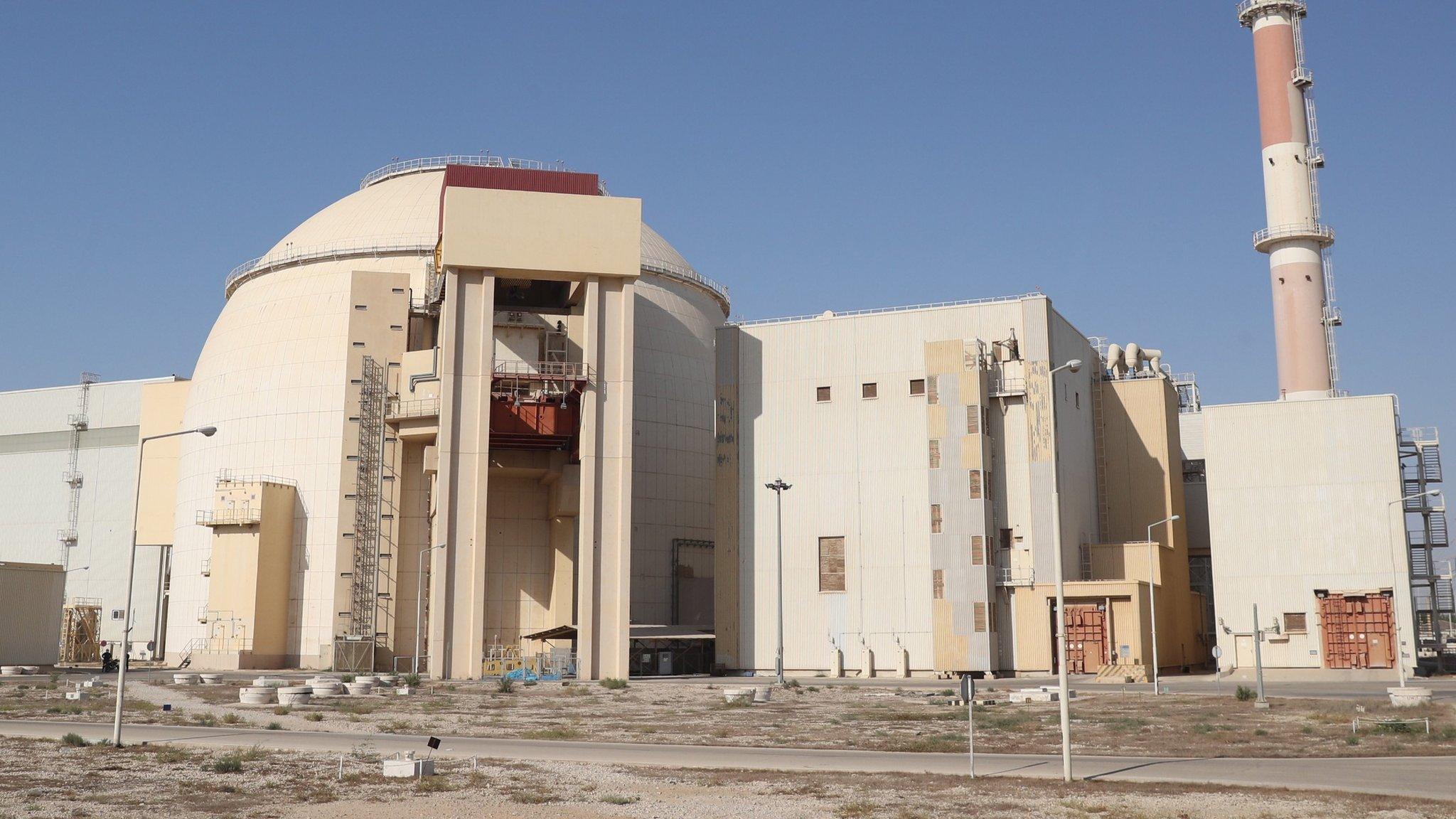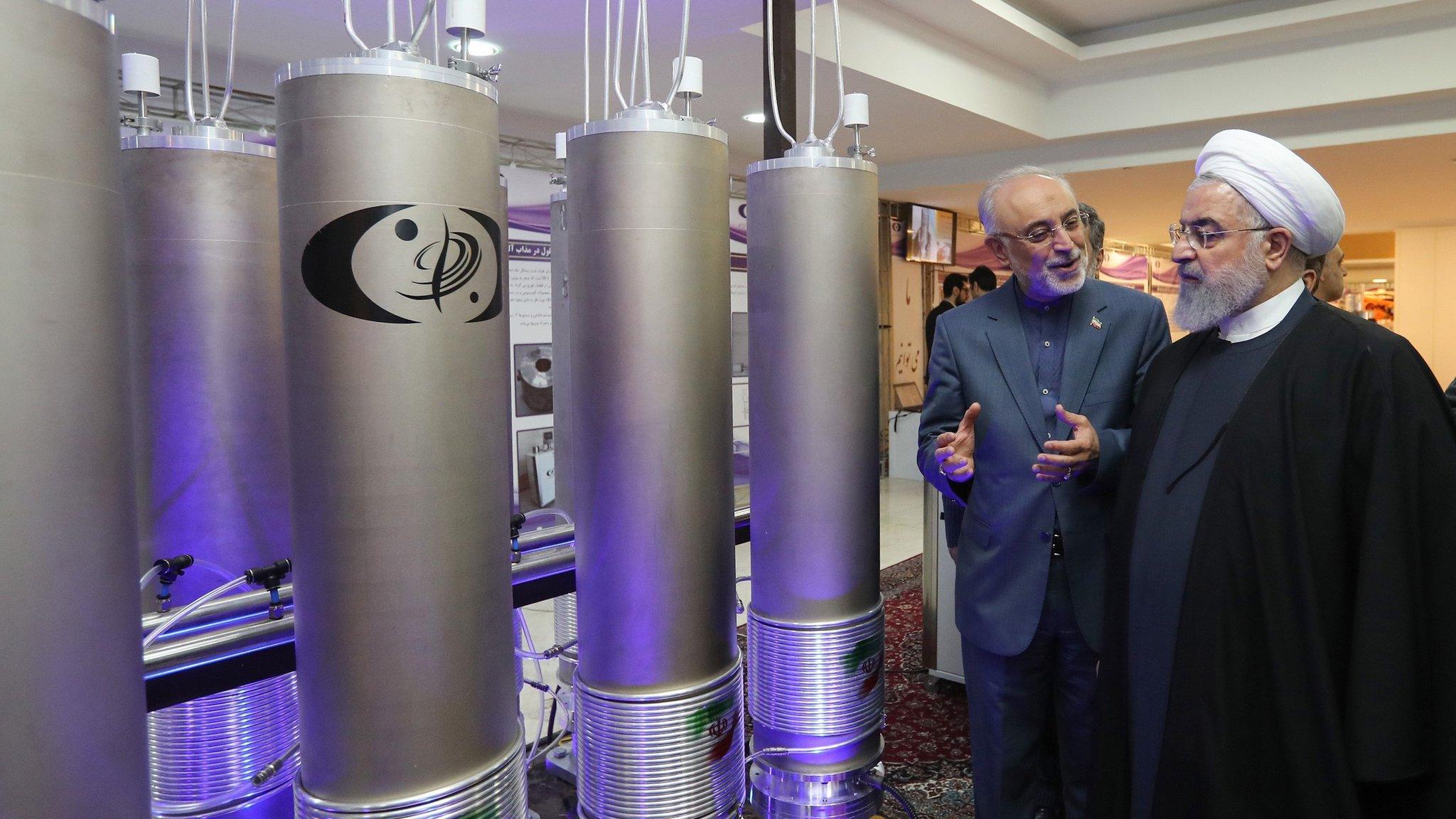Iran nuclear deal: Dead or just dying?
- Published
The Iran nuclear deal explained
In invoking the dispute mechanism for the Iran nuclear agreement or Joint Comprehensive Plan of Action (JCPOA) - in other words, in deciding to hold Tehran to account for its breaches of the deal - the UK, France and Germany insist that they are still firmly behind the deal.
"Our hope is to bring Iran back into full compliance with its commitments under the JCPOA," their joint statement reads.
Treaties and agreements usually have dispute mechanisms to allow one party to challenge another if they think the terms of the deal are being broken.
But the situation with the Iran nuclear agreement is a little different. The dispute mechanism is there, but the moment for invoking it may be long past.
One major party - the US - has already abandoned it. President Donald Trump pulled out of the agreement in May 2018 and reimposed crippling economic sanctions against Tehran. Then after a year or so's delay, Tehran took a series of steps to breach the deal's constraints, the most recent earlier this month.
So the JCPOA exists, but in a kind of limbo - abandoned or largely abandoned by its two most important signatories. So what are the Europeans seeking to do ?
UK Prime Minister Boris Johnson sought to sketch out a way forward.
Speaking on the BBC on Tuesday morning, he said the UK and other signatories would stick with the agreement until it was changed. He understood why the Trump administration was opposed to the deal.
But he emphasised that the goal remained "to stop Iran acquiring nuclear weapons. If we are going to get rid of it, we need a replacement," he said. And in an optimistic appeal to the Americans (and perhaps the president's vanity), he said: "Let's replace it with the Trump deal."
But is his optimism misplaced? President Trump says he wants a more restrictive agreement with Tehran, but one of his recent tweets suggests that actually he is not much interested in negotiating with the Iranians at all.
UK PM on US-Iran tensions: "Let's dial this thing down"
The whole context within which this nuclear dispute is unfolding has changed dramatically since US drones killed Iranian Quds Force commander Gen Qasem Soleimani, and the Iranians' modest retaliation, and then the tragic downing of a passenger airliner by Iran's air defences that followed.
The scenes of protest on the streets of the Iranian capital may well have bolstered the Trump view that pressure on the Iranian regime is working. It is very hard to imagine Mr Trump lifting the sanctions now.
It is equally hard to see Iran accepting a more restrictive agreement, especially one that might have extended time limits, restrictions on its missile programmes and efforts to constrain its regional activities.
This is a dangerous moment. The Europeans are under huge pressure from the US to abandon the agreement, which they are doing their best to resist. But their efforts to find ways of relieving the economic pressure on Tehran have largely failed, and now Iran's own behaviour is making the fate of the agreement ever more precarious.
All this matters. It is easy to forget that the reason this JCPOA agreement was reached in the first place was to avert the risk of war. There were very real fears that either Israel, or the US and Israel in tandem, would attack Iran's nuclear facilities.
The deal was intended to constrain Iran's nuclear effort for a period of time. It was far from perfect. It did not address wider issues. But there was an underlying hope that the regime would perhaps become less disruptive in the region as it received the economic benefits of engagement.
Now in invoking the dispute mechanism, the Europeans are taking the first formal step towards writing the JCPOA's obituary. They insist that they will stand by it for as long as it exists and that they want a better deal - one that the US can support.
For months, analysts have been arguing that the JCPOA was ailing or on life support. It now may be slowly slipping away.


- Published14 January 2020

- Published16 November 2021

- Published30 April 2021

